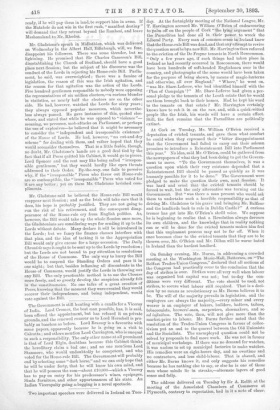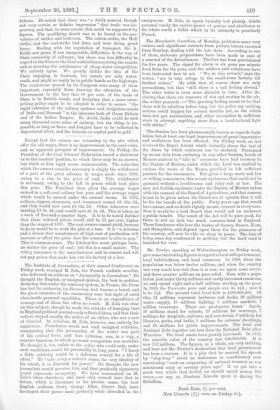The address delivered on Tuesday by Sir A. Rollit at
the meeting of the Associated Chambers of Commerce at Plymouth, contrary to expectation, had in it a note of cheer. fulness. He noted that there was "a fairly general, though not very certain or definite impression" that trade was im- proving, and that, to some extent, this could be supported by figures. The qualifying doubt was to be found in the pre- valence of strikes and look-outs. The cotton-strike, the Hull strike, and the coal-strike had done, and were doing, great harm. Dealing with the regulation of transport, Sir A. Rollit saw great, if not insuperable, difficulties in the way of State ownership of railways ; but there was less difficulty in regard to the State or the local authorities acquiring the canals, and so securing the continuance of cheap water competition. We entirely agree. We greatly dislike the idea of the State engaging in business, but canals are only water- roads, and might as easily be in public hands as the highways. The resolutions passed by the Congress were many of them important, especially those drawing the attention of the Government to the fact that 90 per cent, of the trade of Siam is in British hands, and declaring that a more enter- prising policy ought to be adopted in order to secure "the rapid extension of the railway systems and irrigation-canals of India and Burnish" in the interests both of Great Britain and of the Indian Empire. No doubt, India could do with many thousand more miles of railway, but the thing is im- possible as long as fares and freights have to be collected in depreciated silver, and the interest on capital paid in gold.



































 Previous page
Previous page